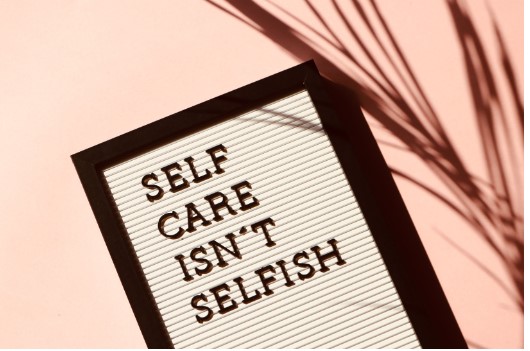What are the 4 Basics of Self-Care
Introduction
Taking care of yourself is essential in maintaining both your physical and mental well-being. But with the demands of daily life, it can be easy to neglect self-care. That’s why understanding the basics of self-care is so important. In this article, we will explore the four fundamental principles of self-care that will help you prioritize your needs and improve your overall quality of life.
What are the 4 Basics of Self-Care
There 4 Basics of Self-Care which has been explained below.
Physical Self-Care
Nourishing your body is a crucial aspect of self-care. It involves taking care of your physical health through proper nutrition, hydration, and exercise. Eating a balanced diet that includes a variety of fruits, vegetables, whole grains, and lean proteins is essential for providing your body with the nutrients it needs to function properly. Staying hydrated by drinking an adequate amount of water throughout the day is also important for maintaining optimal bodily functions.
Regular exercise is another key component of physical self-care. Engaging in activities that get your body moving, such as walking, jogging, or participating in sports, not only improves your physical health but also releases feel-good endorphins that boost your mood. It is essential to find an exercise routine that you enjoy and that fits your lifestyle to ensure consistency and long-term commitment.
In addition to nutrition and exercise, proper rest and sleep are crucial for physical self-care. Getting enough sleep allows your body to repair and rejuvenate itself, promoting overall health and well-being. It is recommended to aim for seven to nine hours of quality sleep each night. Incorporating relaxation techniques such as deep breathing, meditation, or taking a warm bath can also help relieve stress and promote physical relaxation.
Emotional Self-Care
Emotional self-care involves taking care of your emotional well-being and managing your feelings. It is important to acknowledge and express your emotions in healthy ways. This can be done through journaling, talking to a trusted friend or therapist, or engaging in creative outlets such as art or music. It is essential to create a safe space for yourself where you can freely express and process your emotions without judgment.
Practicing self-compassion is another important aspect of emotional self-care. Treat yourself with kindness, understanding, and forgiveness. Practice positive self-talk and challenge negative self-beliefs. Engage in activities that boost your self-esteem and self-confidence. Surround yourself with supportive and uplifting individuals who encourage your emotional well-being.
Setting boundaries is crucial for emotional self-care. Learn to say no when you need to and prioritize your own needs. Setting healthy boundaries in relationships and situations helps protect your emotional well-being and prevents burnout. It is essential to communicate your boundaries clearly and assertively, and to respect the boundaries of others.
Mental Self-Care
Mental self-care focuses on nurturing your cognitive well-being and maintaining a healthy mindset. Engaging in activities that stimulate your brain, such as reading, solving puzzles, or learning new skills, helps keep your mind sharp and engaged. Engaging in mindfulness practices, such as meditation or deep breathing exercises, can also help calm the mind and reduce stress.
Taking breaks and incorporating relaxation techniques into your daily routine is essential for mental self-care. Stepping away from screens and engaging in activities that promote relaxation, such as taking a walk in nature or practicing yoga, can help reduce mental fatigue and improve focus and productivity.
Managing stress is another crucial aspect of mental self-care. Identify your stress triggers and develop healthy coping mechanisms to deal with them. This can include practicing time management, seeking support from loved ones, or engaging in stress-relieving activities such as listening to music or taking a bath. Prioritizing self-care activities that bring you joy and help you relax is key to maintaining good mental health.
Spiritual Self-Care
Spiritual self-care involves nurturing your inner self and connecting with something greater than yourself. This can be done through religious or spiritual practices, such as prayer, meditation, or attending religious services. Engaging in activities that bring you a sense of purpose or meaning, such as volunteering or practicing gratitude, can also contribute to your spiritual well-being.
Connecting with nature is another important aspect of spiritual self-care. Spending time outdoors, whether it’s going for a hike, gardening, or simply sitting in a park, can help you feel more connected to the world around you and provide a sense of peace and tranquility. Engaging in activities that align with your values and beliefs can also contribute to your spiritual well-being.
Importance of Self-Care in Overall Well-being
Prioritizing self-care is crucial for maintaining overall well-being. It allows you to recharge and replenish your physical, emotional, mental, and spiritual energy, which in turn improves your ability to cope with stress, enhances your mood, and increases your productivity. When you neglect self-care, you risk experiencing burnout, decreased motivation, and a decline in your overall quality of life.
By taking the time to care for yourself, you are better equipped to handle the challenges and demands of daily life. Self-care is not selfish; it is a necessary investment in your well-being and happiness. When you prioritize self-care, you are better able to show up for yourself and others in a more present and authentic way.
Tips for Incorporating Self-Care into Daily Routine
Incorporating self-care into your daily routine doesn’t have to be complicated or time-consuming. Start small and gradually build up your self-care practices. Here are some tips to help you get started:
- Create a self-care routine: Set aside dedicated time each day for self-care activities. This can be as little as 15 minutes or as long as an hour, depending on your schedule.
- Prioritize activities that bring you joy: Identify activities that make you feel good and prioritize them in your daily routine. This can be anything from reading a book, taking a bubble bath, or spending time with loved ones.
- Practice mindfulness: Incorporate mindfulness into your daily routine by engaging in activities such as meditation, deep breathing exercises, or simply taking a few moments to focus on the present moment.
- Set boundaries: Learn to say no when you need to and establish boundaries that protect your time, energy, and well-being. This may involve delegating tasks, setting limits on your availability, or declining invitations that don’t align with your priorities.
- Seek support: Don’t be afraid to reach out for support when you need it. Whether it’s talking to a trusted friend, seeking professional help, or joining a support group, having a support system in place can greatly enhance your self-care journey.
Self-Care Activities and Practices
There are countless self-care activities and practices that you can explore and incorporate into your daily routine. Here are some ideas to get you started:
- Engage in physical activity: Go for a walk, practice yoga, or try a new exercise class.
- Practice relaxation techniques: Take a warm bath, listen to calming music, or engage in deep breathing exercises.
- Journaling: Write down your thoughts and feelings, or use journaling prompts to explore your emotions and reflect on your experiences.
- Engage in creative outlets: Paint, draw, write poetry, or play a musical instrument. Find activities that allow you to express your creativity and bring you joy.
- Connect with nature: Spend time outdoors, go for a hike, or simply sit in a park and appreciate the beauty of nature.
- Practice gratitude: Take a few moments each day to reflect on what you are grateful for. Write down three things you are thankful for and focus on the positive aspects of your life.
- Engage in hobbies: Dedicate time to activities that you enjoy and that bring you a sense of fulfillment. This can be anything from cooking, gardening, or playing a sport.
Self-Care Resources and Tools
There are numerous resources and tools available to support your self-care journey. Here are a few recommendations:
- Self-care apps: There are many apps available that provide guided meditations, relaxation exercises, and self-care tips. Some popular options include Headspace, Calm, and Insight Timer.
- Books on self-care: There are countless books on self-care that provide guidance, inspiration, and practical tips for incorporating self-care into your daily life. Some recommended titles include “The Self-Care Solution” by Julie Burton, “The Art of Extreme Self-Care” by Cheryl Richardson, and “The Gifts of Imperfection” by Brené Brown.
- Online communities: Joining online communities or support groups focused on self-care can provide a sense of connection, inspiration, and accountability. These communities often provide a safe space for individuals to share their self-care experiences and learn from others.
- Self-care workshops or retreats: Consider attending a self-care workshop or retreat to deepen your understanding of self-care practices and connect with like-minded individuals. These events often provide a supportive and immersive environment for self-exploration and growth.
Conclusion
Incorporating the four basics of self-care – physical, emotional, mental, and spiritual – into your daily routine is essential for maintaining overall well-being. By prioritizing your needs and engaging in self-care activities that nurture your mind, body, and spirit, you can improve your quality of life and experience greater happiness and fulfillment. Remember, self-care is not selfish; it is a necessary investment in your well-being and a key component of living a balanced and purposeful life. So, start prioritizing self-care today and reap the benefits of a healthier and happier you.






